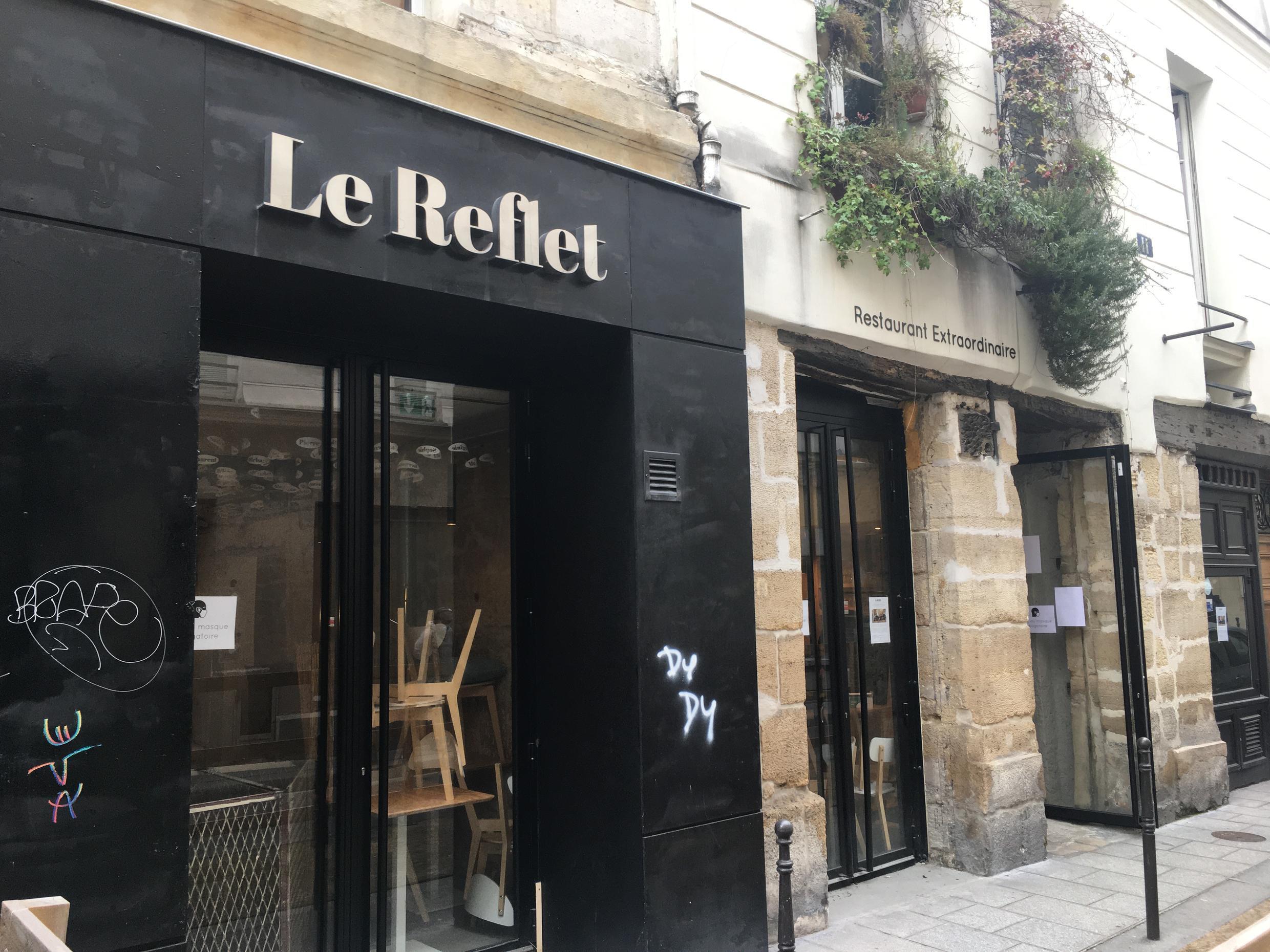Paris inclusive restaurant rallies to help students through Covid pandemic
France’s Covid-19 restrictions have left many students isolated and with reduced means. Paris restaurant Le Reflet, which employs people with Down’s syndrome to help prepare and serve its meals, decided to reopen its kitchen to offer 1-euro meals for students.
Issued on:

As noon approaches on a weekday in early March, a group of students starts to build outside restaurant Le Reflet, on a quiet street in Paris’s central Marais neighbourhood.
“I come here regularly,” says Lauryn Vandewalle, 21, a literature student at Sorbonne university. “It helps to save money, and we eat very well for one euro. It’s impressive.”
When she approaches the table set up at the entrance, she is greeted by Ibrahim, who has spent the past two hours helping to assemble the meals in the kitchen. He gestures to a menu propped on the table to explain the day’s choices.
“When they choose, we put their choices in their bag, put it aside, and they pay and go,” says Ibrahim, one of the restaurant’s staff members with Down’s syndrome. “Today for example we propose a choice between meat and vegetarian, and there’s a starter and a dessert.”

Helping students fits with values
Like other restaurants across France, Le Reflet shut its doors in late October due to the Covid-19 epidemic. When it became clear in January they would not be opening anytime soon, the team decided to help students.
“It let the team get back to work by doing something that seemed important to us, which was helping students as they go through a very difficult period of precarity and reduced social contact,” says founder Flore Lelièvre, who opened the restaurant’s first location in Nantes in 2016.
The idea came about after the team’s pastry chef learned of a similar inclusive restaurant in Belgium preparing cheap meals for students, with the help of suppliers who agreed to pitch in with food and packaging donations.
Adopting a similar model, the team began to offer 1-euro takeaway meals in late January. On average they prepare 50 meals each day and expect to have reached 1000 overall by the end of the month.

“The idea is to keep our culinary identity and offer the students a fresh, wholesome meal with an appetizer, main course and dessert,” says manager Olivier Vellutini.
“We decided to give it a try, because it fits with the values of the restaurant, and it also sends the message that people with handicaps can also help those without them.”
Adapting helps everybody
The Paris location opened three years after the first Reflet restaurant opened in Nantes. Both employ 12 people, including seven with Down’s syndrome, all of them with permanent contracts and standard salaries.
“The goal of Le Reflet is to show what people with mental handicaps are capable of and to inspire more businesses to hire them,” says Leliève, who grew up with a brother with Down’s syndrome and who developed ideas of inclusive workspaces during her architecture studies.

Only about 500 or 600 of the 65,000 people with Down’s syndrome in France have jobs, estimates Lelièvre, who presented the restaurant to President Emmanuel Macron in 2018.
“You have to adapt, but adapting helps everybody,” she says. “It builds team spirit. And in the morning, when you have a person with a handicap come to work with their smile and their motivation, it raises everybody’s spirits.”
On hand this particular day are Inès, who helps chef Sara with the cooking and packaging, as well as Ibrahim, who handles the appetizers and the service.
“I like everything about my work,” Ibrahim says. “I like serving in the dining room, preparing in the kitchen, and that if somebody needs help, I help them.”
Students hint at difficulties
Outside the restaurant, most students hesitate to talk about their situations, which for many has involved limited means and long months of isolation while attending online classes from tiny rooms.

“I’ve been coming here for the past two weeks. Even if it means travelling for 40 minutes, it’s worth it,” says Raghu Jayasimman, 23, a business student from India who arrived in France in 2019.
The visit to Le Reflet also helps with the social contact that has been limited during the long months of the epidemic.
“I have the help of a scholarship, but many students have lost their jobs,” says Lauryn Vandewalle.
“What I find hardest right now is the isolation… What’s good here is the human aspect, there’s social contact that’s been lost during Covid. As a student, that helps a lot.”
Daily newsletterReceive essential international news every morning
Subscribe